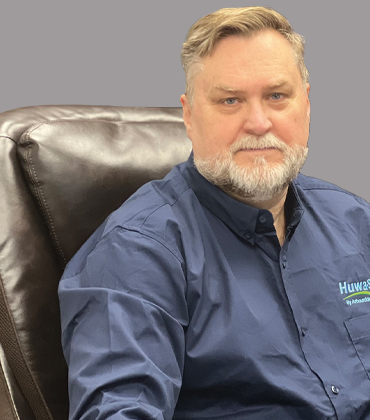Water is the lifeblood of our communities, industries, and ecosystems. Yet, in an era of increasing environmental awareness and health consciousness, traditional water treatment methods are showing their limitations.
Chlorine—long the industry standard—is increasingly recognized as a solution and part of the problem.
This is where Arbourdale emerges as a game-changer. It offers innovative, chemical-free bioremediation solutions that are transforming how Canada approaches water safety.
The Chlorine Conundrum
For decades, chlorine has been the go-to solution for water treatment. Municipalities, farms, and industries have relied on its disinfecting power, often overlooking its significant drawbacks.
The issues with chlorine extend beyond health concerns. Its corrosive nature damages infrastructure, leading to costly maintenance and premature system failures. In agricultural settings, chlorine-treated water can stress livestock, while in municipal systems, it reacts with organic matter to form dangerous disinfection byproducts.
These limitations created the perfect opportunity for Arbourdale’s natural solutions to shine.
“Most of what we do is the pursuit of chlorine elimination,” explains David Sim, President of Arbourdale. “We believe water treatment doesn’t have to be complicated. Our systems are designed to simplify the process, eliminate risks, and deliver consistent results without relying on chemicals.”
A Natural Solution Takes Root
Arbourdale’s journey began unexpectedly in the irrigation industry, where Sim first encountered water remediation challenges. Tasked with finding solutions for algae-clogged irrigation systems, he discovered the limitations of conventional approaches. This experience planted the seeds for Arbourdale—a company built on the principle that water treatment shouldn’t create new problems while solving old ones.
Today, the company’s bioremediation solutions leverage natural processes to break down contaminants, leaving only water and oxygen behind. This approach eliminates the harmful side effects of chemical treatments while often proving more effective in real-world applications.
Transforming Agriculture through Clean Water
Agriculture accounts for most of Arbourdale’s business, particularly in poultry and livestock operations. The connection between water quality and animal health is profound yet often overlooked.
“In poultry production, water is the universal solvent,” Sim explains. “Everything that affects the birds—nutrients, medications, pathogens—travels through the water system.”
Arbourdale’s solutions have demonstrated remarkable results in agricultural settings. A prominent hatchery struggling with declining hatch rates implemented Arbourdale’s fogging disinfection protocol. Within months, they saw a 16% increase in viable chicks—a transformation that significantly boosted their bottom line. The solution didn’t just improve hatch rates; it enhanced the overall health of the chicks, leading to stronger birds throughout the production cycle.
Municipal Water: A Growing Frontier
While agriculture remains Arbourdale’s core market, municipal water treatment represents a significant growth area. Here, the focus isn’t just on eliminating chlorine and addressing its most dangerous byproduct: trihalomethanes (THMs). These carcinogenic compounds form when chlorine reacts with organic matter in water—a problem for municipalities drawing from surface water sources.
Arbourdale’s systems offer municipalities a way to maintain water safety without generating these harmful byproducts. The implications are substantial: reduced long-term health risks for communities, lower treatment costs, and simplified regulatory compliance.
Innovating Beyond Traditional Markets
Arbourdale’s ability to adapt its bioremediation solutions to diverse applications makes it unique. Two emerging areas showcase this versatility:
• Legionella Control: As awareness grows about Legionella bacteria in cooling towers and plumbing systems, Arbourdale is pioneering chemical-free solutions. Traditional methods rely on superheating water and hyperchlorination—energy-intensive processes that accelerate equipment corrosion. Arbourdale’s approach eliminates these drawbacks while providing more consistent protection.
• Artificial Turf Maintenance: The synthetic turf industry faces growing scrutiny over pathogen risks. From sports fields to playgrounds, these surfaces can harbor dangerous microorganisms. Arbourdale’s disinfectants neutralize these threats without leaving toxic residues, addressing a need that conventional chemicals can’t satisfy.
Expertise over Products
Perhaps the most surprising aspect of Arbourdale’s success is that its greatest value is often not its products but its expertise.
“We’ve learned that every operation has unique water challenges,” David notes. “Sometimes the solution involves our products, but just as often, it’s about rethinking how water moves through a system.”
This consultative approach has led to some of their most innovative solutions. Arbourdale redesigned the entire water distribution system for one vegetable processing plant, achieving such clean effluent that the municipality granted them a wastewater rebate. In another case, an automotive paint plant eliminated chlorine fumes compromising paint quality—a solution that improved worker safety.
Sustainability that Doesn’t Compromise Performance
Sustainability has become a critical priority across industries. Regulatory requirements and corporate responsibility initiatives drive organizations to reduce their environmental impact. The company’s chemical-free systems align with these goals by eliminating chemical discharges, hazardous waste, and the risk of contamination from chemical spills.
At the same time, performance is never sacrificed. Arbourdale’s solutions are rigorously tested, independently verified, and compliant with stringent industry standards. Organizations in healthcare, agriculture, and commercial sectors achieve superior water quality outcomes while meeting sustainability targets— reduced water and energy consumption further support broader environmental initiatives and cost savings.
It enables clients to balance operational efficiency with environmental responsibility—without compromise.
As Arbourdale looks to the future, several strategic priorities emerge. Geographic expansion into U.S. markets is underway, driven by growing interest in chemical-free alternatives. Product development continues, with recent additions focusing on organic-certified solutions for sensitive applications.
Perhaps most importantly, Arbourdale is committed to changing industry perceptions about water treatment.
“We’re not just selling an alternative to chlorine,” David emphasizes. “We’re promoting a fundamentally different way of thinking about water safety—prioritizing long-term sustainability alongside immediate results.”
A Model for Responsible Innovation
Arbourdale’s story offers valuable lessons for businesses across sectors. By identifying the limitations of industry standards and having the courage to propose alternatives, they’ve carved out a unique market position. Its success demonstrates that environmental responsibility and business success aren’t just compatible—they can be mutually reinforcing.
As water quality regulations tighten and sustainability expectations grow, Arbourdale’s approach seems increasingly prescient. What began as a better way to clean irrigation water has evolved into a comprehensive philosophy of water treatment—one that could very well shape the industry’s future.
Thank you for Subscribing to Environmental Business Review Weekly Brief
